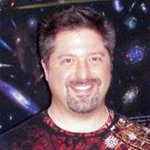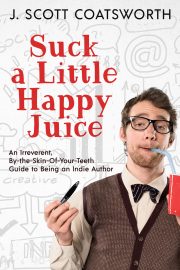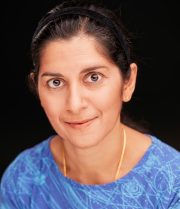Guest Post: We Limit Ourselves and Need to Stop
by Mike Brotherton
 Recently, Jonah Lehrer, author of Imagine: How Creativity Works, appeared on The Colbert Report. In his interview with Stephen Colbert, Lehrer said something that was very powerful for me. He said everyone is creative. It’s one of our species’ better qualities. Lehrer amplified his statement by describing how nearly all second graders describe themselves as creative, but this fraction drops dramatically with a few more years of school, and only some 10% of adults think of themselves as creative.
Recently, Jonah Lehrer, author of Imagine: How Creativity Works, appeared on The Colbert Report. In his interview with Stephen Colbert, Lehrer said something that was very powerful for me. He said everyone is creative. It’s one of our species’ better qualities. Lehrer amplified his statement by describing how nearly all second graders describe themselves as creative, but this fraction drops dramatically with a few more years of school, and only some 10% of adults think of themselves as creative.
Here’s the thing. I don’t think this trend applies to just creativity.
Everyone can learn to write, do math, understand science, and the like. So many of us learn that we’re not as good as others, which is not a remarkable statement given that the average person is only average at anything. We extrapolate incorrectly from that to a state where we don’t think we’re good at all, or even that we lack the ability altogether. That’s unfortunate.
Everyone can improve their abilities at almost anything with determination, practice, and coaching. Maybe not to superstar levels, or even to superior levels, but certainly to some level of competence.
When you say “I can’t do that” about something that is a birthright of being human, you’re lying to yourself. Those lies become self-fulfilling prophecies too often:
I can’t do math.
I can’t draw.
I can’t sing.
I can’t write well.
I can’t write hard science fiction.
I can’t write steampunk.
I can’t write urban fantasy.
I can’t write YA, MG, etc.
I can’t… you name it.
If other people can do it, chances are excellent that you can, too, if you just stop lying to yourself. Next time you face a challenge, change the “I can’t…” to an “I can…” and see if it opens up some possibilities. Doing something hard starts with believing it’s possible. I’ve no doubt much of my own personal success lies in simply not holding on to limiting beliefs. If I had, I would not have gotten a PhD, become a professor, written novels, run marathons, or lived abroad. Nor would I be happily married to my wife.
Give it a shot. Say it.
I can.
—
 Originally from the St. Louis area, Mike Brotherton got his PhD in astronomy from the University of Texas in 1996, and held positions at Lawrence Livermore National Laboratory and Kitt Peak National Observatory before coming to Laramie. His specialty is studying the supermassive black holes in the centers of galaxies and how they shine when in the active phase. He is also interested in the relationship between such active galactic nuclei (AGN) and their host galaxies, and their mutual evolution. His work is primarily observational, and he uses a wide assortment of telescopes/observatories operating across the electromagnetic spectrum including WIRO, McDonald, IRTF, KPNO, Lick, Keck, Gemini, the VLT, Hubble, Chandra, and the VLA. He also makes use of data archives such as the Sloan Digital Sky Survey. In addition to being a scientist, he is a science fiction writer, author of the well-received science fiction novels Star Dragon (2003) and Spider Star (2008) from Tor Books. He is also the founder of the NASA-funded Launch Pad Astronomy Workshop for Writers, which brings a dozen award-winning professional writers to Wyoming every summer. He blogs at www.mikebrotherton.com where this post first appeared.
Originally from the St. Louis area, Mike Brotherton got his PhD in astronomy from the University of Texas in 1996, and held positions at Lawrence Livermore National Laboratory and Kitt Peak National Observatory before coming to Laramie. His specialty is studying the supermassive black holes in the centers of galaxies and how they shine when in the active phase. He is also interested in the relationship between such active galactic nuclei (AGN) and their host galaxies, and their mutual evolution. His work is primarily observational, and he uses a wide assortment of telescopes/observatories operating across the electromagnetic spectrum including WIRO, McDonald, IRTF, KPNO, Lick, Keck, Gemini, the VLT, Hubble, Chandra, and the VLA. He also makes use of data archives such as the Sloan Digital Sky Survey. In addition to being a scientist, he is a science fiction writer, author of the well-received science fiction novels Star Dragon (2003) and Spider Star (2008) from Tor Books. He is also the founder of the NASA-funded Launch Pad Astronomy Workshop for Writers, which brings a dozen award-winning professional writers to Wyoming every summer. He blogs at www.mikebrotherton.com where this post first appeared.


